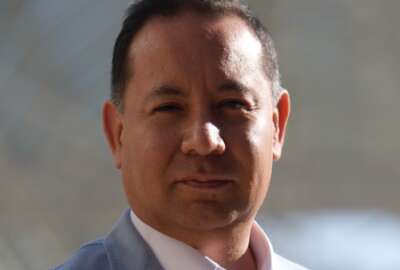
Navy scandal spreading like an oil slick
The question for Chief of Naval Operations Adm. John Richardson is how tough and accountable the Navy will be about itself as the Fat Leonard scandal widens.
The Justice Department handed down three more indictments of current and retired Navy officers last week. That brings the total to 13 snared in the seemingly endless scandal of Glenn Defense Marine Asia — the company once run by Leonard Glenn Francis of Malaysia. Also known as Fat Leonard.
The indictments, starting in 2013 for a scheme that went on for years, are like the salt water lapping at Navy ships. Each wave adds a little corrosion, each indictment ripping a little more of the Navy’s reputation. The Navy spends significant resources every day combating corrosion and decay of its vessels so they’ll stay ship-shape. So must it also attend to its ethics. Too much is at stake for it not to.
You know the story. In brief, many, perhaps hundreds, of uniformed and civilian personnel in the 7th Fleet took bribes of all kinds from Francis in return for Navy data and preferential treatment that made his company the top provisioner of ships in Southeast Asia. The Justice Department and Navy Criminal Investigative Service say GDMA not only got contracts, it fleeced the Navy on them. It went on for years — partly because Francis had people on his bribe payroll inside NCIS itself. Of the 13 indicted so far, according to Justice, nine pleaded guilty rather than go to trial.
I’ve read the series of press releases from DOJ, each detailing one or more indictments. Last month at the Sea Air Space conference, I asked the current Chief of Naval Operations, Adm. John Richardson, about Fat Leonard and whether this is an isolated case. He answered blandly, pointing to four qualities he wants in Navy people, outlined in his recently-published Design for Naval Superiority: integrity, accountability, initiative and toughness.The question for Richardson is how tough and accountable the Navy will be about itself.
More commentary
A detailed story last week in the Washington Post states Richardson is anything but bland about the Fat Leonard deal. He gathered 200 top Navy officials last December and told them he knew at least 30 of them were under criminal investigation at that moment. Imagine the squirming and side-to-side glancing in that suddenly warm room.
In my imagination, Richardson is biding his time while Justice and its partners map the extent of the cancer. Then he acts decisively to cauterize and remove it. That will require wholesale separations, because this appears to be systemic corruption, not a few isolated individuals. The whole thing is at once sad, revolting and nearly unbelievable.
Contracting scandals and incidents of bribery occur from time to time. Where you have people you’ll have this. Most of them are isolated incidents, allowing everyone else to retain the belief that the system is essentially non-corrupt. We sometimes forget what a fragile, precious quality that is. But Fat Leonard reaches into the highest echelons of the Navy. It threatens to damage — or maybe already has — a great and powerful institution, just as the Tailhook Association convention sexual assault episodes did a quarter century ago. Even today, people flinch at the very word, Tailhook Association.
The military writ large has an overseas contracting problem. Witness the reports of the Special Inspectors General for Iraq and Afghanistan. The Fat Leonard situation shows that you don’t need a wartime contingency operation to produce corrupt practices. This all occurred in the day-to-day context of ship servicing. It’ll be up to flag officers with no association with the 7th Fleet to rescue that fleet from itself.
Copyright © 2024 Federal News Network. All rights reserved. This website is not intended for users located within the European Economic Area.
Tom Temin is host of the Federal Drive and has been providing insight on federal technology and management issues for more than 30 years.
Follow @tteminWFED






